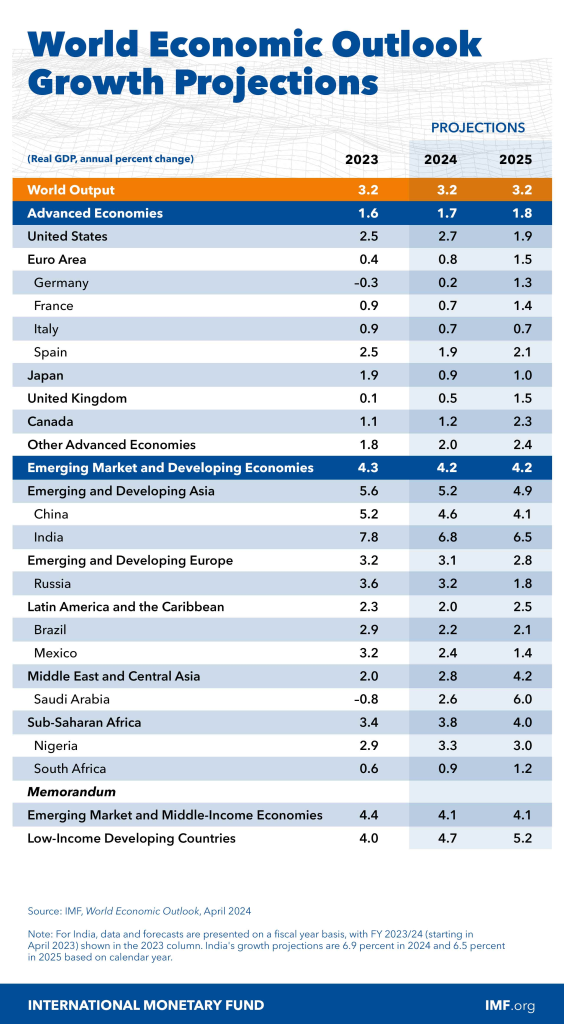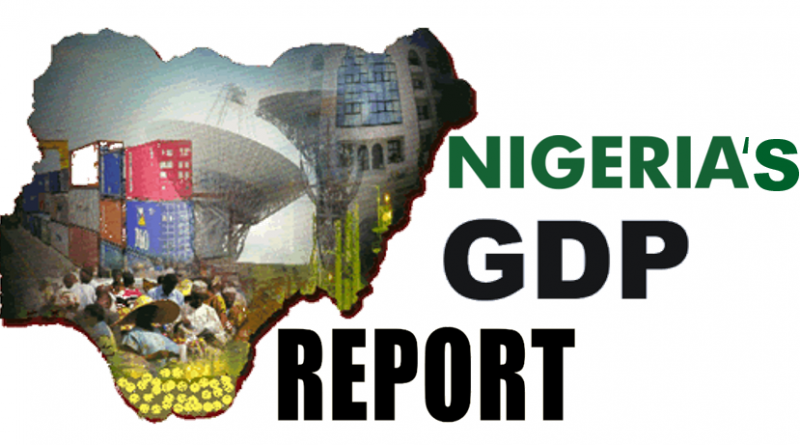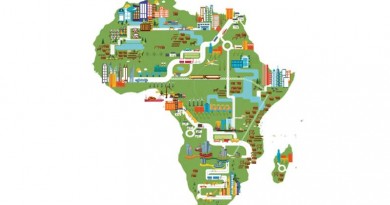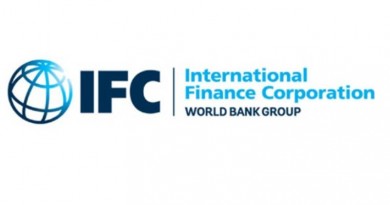See the list of Africa\s top 10 economies as Nigeria slips to 4th place
The International monetary Fund, IMF, in its latest report, titled RESILIENCE AMID DIVERGENCE, dated April 16, 2024, listed the top ten economies in Africa in GDP ratings with Nigeria slipping to the 4th place behind south Africa, Egypt and Algeria
- South Africa
With a GDP of $373 billion, South Africa maintains its position as the most industrialized economy in Africa. The country’s economic landscape is characterized by a diverse profile, encompassing sectors such as mining, agriculture, manufacturing, and services. - Egypt
Egypt boasts a GDP of $347 billion, capitalizing on its strategic location as a link between Africa and the Middle East. Historically, Egypt has been a key center for trade and commerce, with a thriving tourism sector, agriculture, manufacturing, and a growing ICT industry contributing to its economic significance. - Algeria
At $266 billion, Algeria’s GDP is largely driven by its abundant natural resources, particularly oil and gas, which fuel the economy through exports. Efforts to diversify the economy away from oil revenues are underway, aiming to promote sustainable growth across various sectors. - Nigeria
Known as the “Giant of Africa,” Nigeria ranks fourth with a GDP of $252 billion. With a large population and significant oil reserves, Nigeria has the potential to emerge as one of the world’s leading economies. - Ethiopia
Ethiopia’s GDP stands at $205 billion, reflecting its recent economic transformation and attracting substantial foreign investment in agriculture, manufacturing, and infrastructure. Ethiopia’s progress positions it as a key player in the region’s economic landscape. - Morocco
Morocco, renowned for its stability and strategic location as a crossroads between Africa, Europe, and the Middle East, boasts a GDP of $152 billion. Its economy thrives in diverse sectors such as agriculture, tourism, manufacturing, and renewable energy. The government’s initiatives to foster entrepreneurship and innovation are propelling Morocco’s economic strength and global competitiveness. - Kenya
With a GDP of $104 billion, Kenya holds the title of East Africa’s largest economy. Fueled by a dynamic entrepreneurial culture and a growing middle class, Kenya has established itself as a crucial economic hub in the region. Key sectors driving its GDP growth include agriculture, tourism, financial services, and technology, which underpin Kenya’s economic vitality and regional influence. - Angola
Angola’s GDP stands at $92 billion, primarily driven by its extensive oil reserves that historically shaped its economy through exports. However, the government has recently embarked on ambitious economic diversification efforts, aiming to reduce dependence on oil revenue and promote inclusive growth. - Cote D’Ivoire
Cote D’Ivoire’s GDP of $86 billion signifies a remarkable economic resurgence after years of political turmoil. This turnaround is propelled by strategic investments in infrastructure, agriculture, and manufacturing. With a youthful demographic dividend and an increasingly favorable business climate, Cote D’Ivoire is well-positioned for sustained economic expansion. - Tanzania
Concluding the list, Tanzania possesses a GDP of $79 billion. Abundant in natural resources and with a diverse agricultural sector, Tanzania offers extensive investment and growth opportunities. Government-led initiatives focusing on infrastructure development, industrialization promotion, and improvement of the business climate serve as crucial drivers for Tanzania’s economic advancement agenda.




